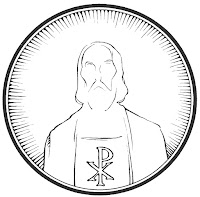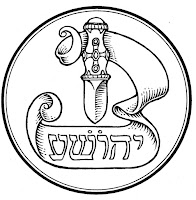CLICK HERE to hear the sermon audio.
CLICK HERE to view the sermon video.
“You Will Live”
Grace to you and peace from God our Father, and from our Lord and Savior Jesus Christ. Amen.
God never deals unjustly. You can count on that. Unfairness is a stranger to Him. No man has ever had the right or reason to say: “God has dealt unjustly with me.” No matter what complaints, or how many of them, have issued from the dissatisfied hearts of men, God always answers them with the truth: “Friend, I am doing you no wrong.” And so, if you desire to bargain with God for wages; if you demand that He deal with you on the basis of merit, He will certainly do it. He will point to the unquestioned standard of good in His holy Law, and will say: “Do this, and you will live.” And He means to keep that promise. And many, it seems, are ready to bargain with God on the basis of merit. Might you be one of them? Do you understand the justice of God and its unqualified demands?
What is it, after all, that we deserve? Holy Scripture puts it this way: “There is none righteous, no, not one, there is none who understands...for all have sinned and fall short of the glory of God.” All the good that we may do can never balance out the weight of our sins. What do we earn for ourselves by our sin? Again, Scripture speaks: “Cursed is everyone who does not continue in all things which are written in the book of the Law, to do them.” Can we, then, really complain of injustice or unfairness when suffering or adversity comes our way? And, ultimately, what can we expect when the time comes for our wages to be paid in full? What have we deserved from God by our sins? His wrath and displeasure, death both temporal and eternal; that is what we have earned; a final and terrible, “Friend, I am doing you no wrong.” Bargain with God, if you insist, on the basis of your own merit. Ask Him to give you what you deserve. Demand of Him your wages. But be sure you know what you’re doing, “for the wages of sin is death...” Certainly, none of us wants that. But what shall we do in our dealing with a God of absolute justice?
Strange as it may seem to human thinking, our just God is also a merciful God. Peter had asked what the disciples were going to receive from following Jesus. It was the wrong question to ask, and it revealed a dangerous pride. But Jesus assured him that those who follow Him will not be disappointed. He illustrates that in this parable. Those who had come to work at the later hours did not negotiate for their wages. They were content to work on the simple promise that they would be treated properly. They trusted the generosity and faithfulness of the Master. And so, when the end of the day arrived, what they received was not wages, but a gift—a generous gift. The owner justified it in this way: “Is it not lawful for me to do what I wish with my own things?” This gives us a picture of our God that gives us hope and courage, one that draws us to cast ourselves upon His mercy. We are taught that if we simply come to Him, empty of every shred of self-righteousness, with no vain claim of merit, we will find Him to be a good and gracious God. If we only faithfully seek His mercy, we will enjoy from His hand the abundant gifts of His grace.
Grace is the great truth of the Kingdom of God. You and I live entirely on grace, even as we look to God for everything that is good, without any merit or worthiness in us. As St. Paul said: “The gift of God is eternal life, through Jesus Christ, our Lord.” How can a just God be this way? After all, aren’t we sinners? Don’t we deserve nothing but punishment? Yes…but we don’t ask for what we deserve. Instead, we believe and receive His offer of mercy. The Psalmist says: “He has not dealt with us according to our sins, nor punished us according to our iniquities.” And the grace He gives has been acquired at tremendous cost: the suffering and bloody death of His only-begotten Son. At the cross, justice and mercy meet, for there the just and holy God made full satisfaction to the demands of His own Law. There His Son paid, in His own body and life, the price for our freedom from sin and judgment. Through the merits of Christ, God declares that we are just and holy in His sight, forgiven of our sin, all without violating His justice and righteousness. And that is the only way it ever could be right for God to receive us to Himself.
“My thoughts are not your thoughts, neither are your ways My ways, says the Lord. For as the heavens are higher than the earth, so are My ways higher than your ways and My thoughts than your thoughts.” And when things seem all wrong, it is in Jesus Christ that we can see the kindly face of our heavenly Father in the fullness of His grace, as He says to us: “Friend, I am doing you no wrong.” In the name of the Father and of the Son (+) and of the Holy Spirit. Amen.
The peace of God which passes all understanding will keep your hearts and minds in Christ Jesus always. Amen.













